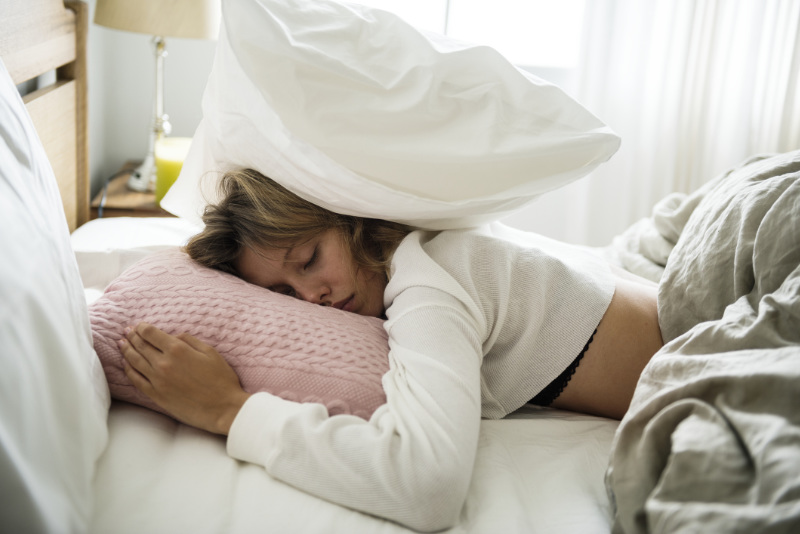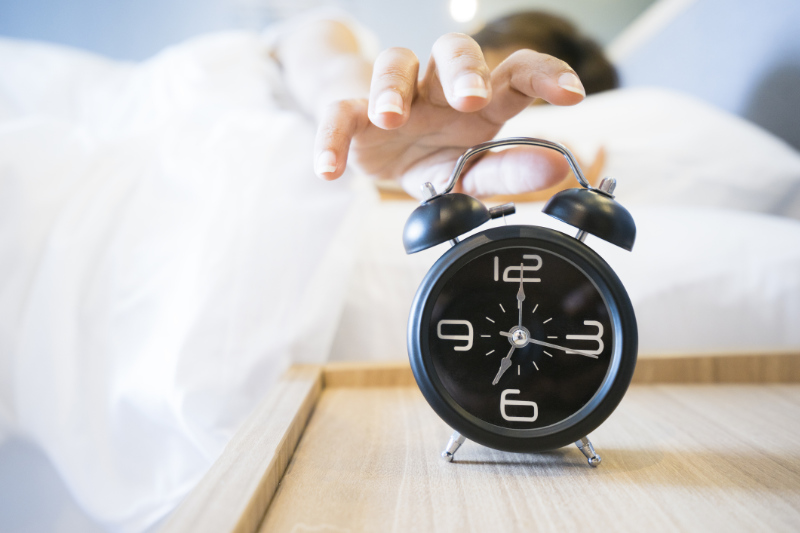We all know the weekend is a chance to enjoy a much-needed break and catch up on all the sleep we’ve missed after the whirlwind work of the previous week, but is oversleeping actually bad for our health? And, if so, do you know how to stop oversleeping and break the cycle of too much sleep?
How much sleep do we need?
Experts tell us that it’s beneficial to have seven or eight hours sleep each night, but we all know that life often gets in the way. However, on the weekends we stay in bed as long as we want in the morning – as a great time to even the score.
But while banking those extra hours might feel good at the time, it could actually have a negative effect on your health. Instead of not getting enough sleep, there’s a risk of having too much.
Recommended: Natural home remedies for sleeplessness – 11 natural cures for insomnia.
How does oversleeping affect us?

According to physiologist Andrea Houston, oversleeping can have a negative effect on our circadian rhythm – the body’s internal clock that makes us feel energised and drowsy around the same times every day, which makes figuring out how to stop oversleeping difficult to pin down.
She explains: “Oversleeping can impact the production and release of serotonin and melatonin, hormones that control things like mood, appetite, and our sleep and wake cycle.”
Houston, who specialises in respiratory and sleep at London Bridge Hospital, says that tampering with this can make us feel out of sorts, and can lead to bigger problems in the long run, such as depression, heart disease and diabetes.
Dr Nerina Ramlakhan, a sleep expert for Silentnight says that too much sleep can also encourage bad lifestyle habits, which can contribute to low drive: “If you’re oversleeping, you’re less likely to be exercising regularly and eating healthily.”
Sleeping for longer, she says, can actually be a source of fatigue in itself.
Recommended: Is sleeping naked better for your health – and should you ditch pyjamas?
Why do we oversleep?

There are a variety of reasons we oversleep, but Dr Ramlakhan says that our mental wellbeing can play a crucial role.
“Mental health problems can have a big impact on sleep, as lacking motivation and purpose – along with low mood – can make it harder to get out of bed.
“Obesity is another factor,” she adds, as “when people are obese, they are less likely to exercise, less likely to eat healthily and consequently are more tired.
If oversleeping persists, it could be part of a medical condition, such as sleep apnoea, where a person stops breathing momentarily when they’re asleep, or periodic limb movement disorder, where those affected have cramping and jerking of their legs during sleep.

Narcolepsy is another sleep disorder which can cause ‘sleep attacks’, where a person suddenly falls asleep, and it generally causes excessive sleepiness.
Though, for many of us, oversleeping can simply be a symptom of our all too busy lives. “An important factor in today’s society is insufficient sleep, due to our work and social lives,” says Houston, “which is why we may then try to play ‘catch up’ at weekends.”
Recommended: How to calculate your sleep score to help you get a perfect night’s sleep.
How to stop oversleeping

It’s understandable for everyone to want a break every now and again, as well as a few glasses of wine to celebrate the weekend. No one would begrudge that.
However, limiting oversleeping is a good way to avoid going back to work the next Monday feeling worse than you did before the weekend.
How to stop oversleeping by following our simple, three-step guide to break the cycle of too much sleep. Here, Dr Ramlakhan explains a few ways you can stay on top of your sleep:
- Set goals to stop oversleeping and help you get up each day
“Plan resolutions or goals, and action them. Maybe these are health and fitness goals, or maybe it’s about getting out into the fresh air.”
- Plan activities to prevent boredom
“It’s very easy to get stuck in a rut, becoming bored and, ultimately, spending too much time in front of the TV. Planning helps us to keep focused and ensures our energy doesn’t become stagnant.”
- Keep your mood positive about how to stop oversleeping
“You can do this by exercising to reduce stress hormone levels, spending more time outdoors, exposing yourself to sunlight (it increases the brain’s release of the happy hormone serotonin) and eating a balanced diet.”































































